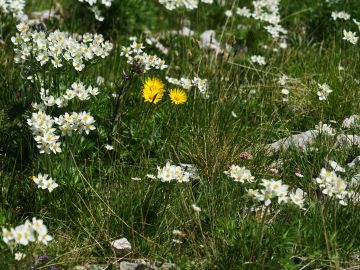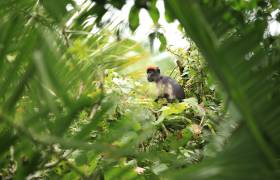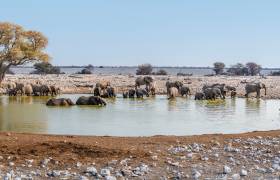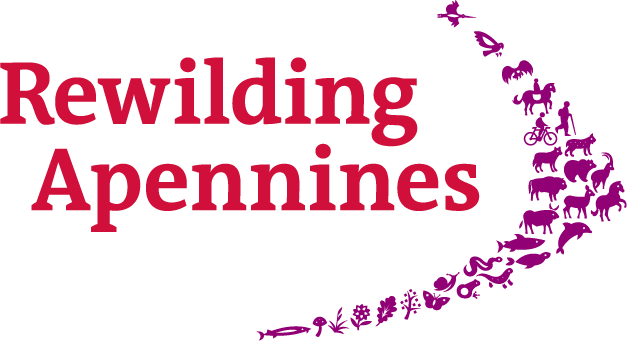
It comes as no surprise to us that bees and other pollinators such as hummingbirds, bats and butterflies play a role in maintaining our ecosystems, but the extent to how significant a role they actually play in our daily lives cannot be overstated enough. Bees play a key part in bolstering our food production of fruits, nuts and vegetables and through pollination also help to promote our world’s wonderful biodiversity that we enjoy exploring on our adventures.
An astonishing 35% of our planet’s food crops rely solely on animal pollination that in turn helps to produce 90% of the world’s food! So, for these reasons, it’s essential that we all continue to raise awareness of how beekeepers, organisations and everyday individuals can make a difference in how we support and protect our bees. To celebrate World Bee Day, we got in touch with Peitrantonia Costrini, who works for Rewilding Apennines, which is the local NGO in Central Apennines connected to the Rewilding Europe mission. He’s an avid conservationist, beekeeper and Bear Ambassador for Rewilding Europe in the Apennines so he could share with us his outstanding knowledge and insight on how important bees are to our environment.
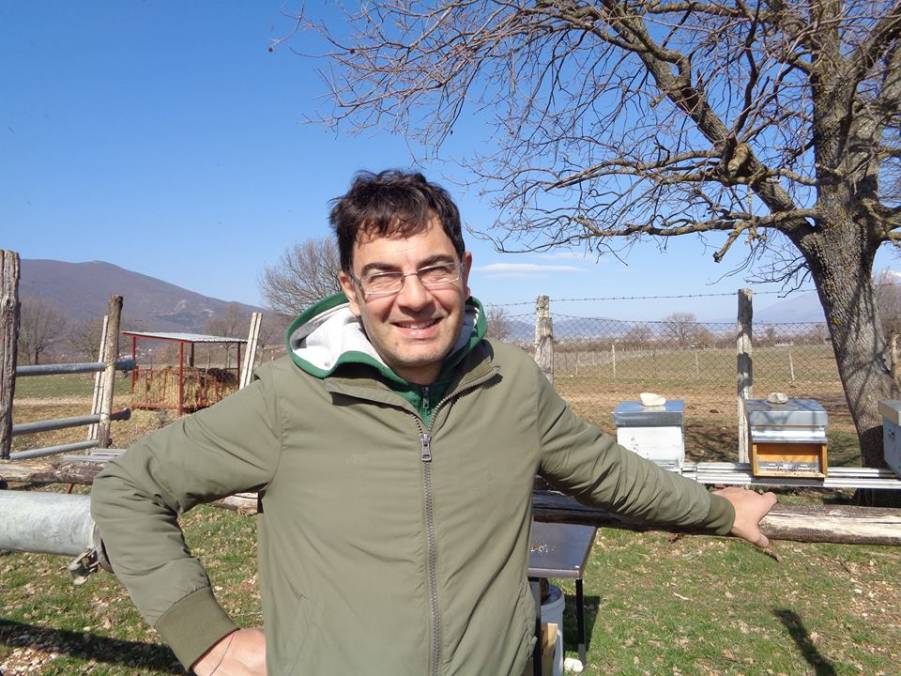
“When it comes to bee pollination”, Peitrantonia explains, “the bees’ body collects the energy-rich nectar and protein pollen grains by its electrostatic forces, that allows it to stick to the hairs of her body. When she visits the next flower, some of the pollen rubs off – this is known as cross-pollination. This vitally important process leads to greater genetic diversity in plants and also helps to increase the harvest number and fruit size of a plant bearing fruit”. He continues, “The constant work of pollination causes the number of seeds to increase year after year, for each plant species, resulting in atrophic abundance. Without these key pollinators, many species of wild plants would simply cease to exist, which in turn could have detrimental impacts on agriculture and food production levels”. With statistics claiming that a single bee colony can pollinate up to 300 million flowers in just one day, there would be fewer other species that could step in and fill the essential role of crop pollination if we lived in a world without bees.
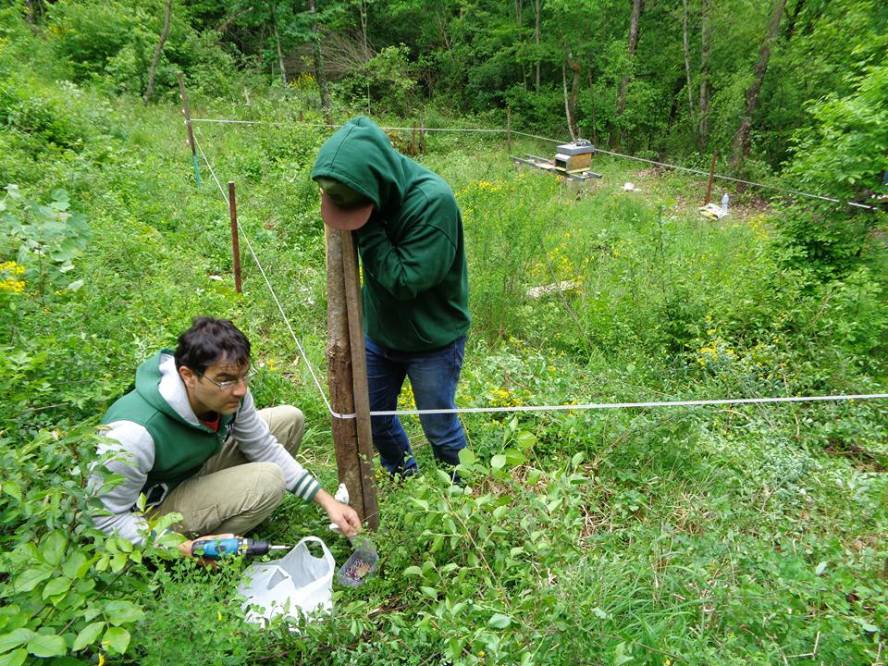
However, over the past couple of decades, bees have become increasingly under threat. Research suggests that the worldwide bee colony decline has occurred because of human intervention due to the increase of intensive farming practices, land-use change, mono-cropping and pesticides use. Although thankfully, there are sustainable solutions we can take to restore and protect the world’s bees. These actions involve banning the use of dangerous pesticides, restoring ecological farming methods and protecting pollinator health by preserving wild habitats. Peitrantonia is currently working with Rewilding Europe, an NGO that are looking to create and restore rewilded landscapes in 10 different regions across Europe. Focusing on habitats in the Italian Apennines, Peitrantonia, Bear Ambassador, has been working on increasing the endangered Marsican bear population and many other native species in the region by establishing “nature corridors” that help to reconnect the national and regional parks in the central Apennines. This project will in turn help to protect and increase the number of pollinators in the newly recovered wild areas.
The extensive rewilding initiative also includes, “the planting and pruning of wild fruit trees in order to increase their production capacity” Peitrantonia comments. “In doing this, there will be a greater concentration of spring nectar resources that’s useful for guaranteeing a balanced development of pollinating insects, including bees”. He continues, “It’s thanks to these actions that the springs in the connection areas are less and less silent, as over time they continue to be re-populated by local flora and fauna”.
Once rewilded, the land in the Central Apennines of Italy will not only help pollinator health, but the area will also provide an effective carbon sink, capturing an estimated 85,000 tons of carbon over 5 years. To support this conservation effort, we’re partnering with Rewilding Europe with the launch of our Nature & Carbon Corridors Project. This project aims to rewild 5,000 hectares of the Italian Apennines over the next five years, and we’re dedicated to rewilding 100 square metres for every customer who travels with us. So, with every trip you book, you can travel safely in the knowledge that you’re doing your part to help make Europe a wilder place for the endangered Marsican bear population and key pollinators like bees.
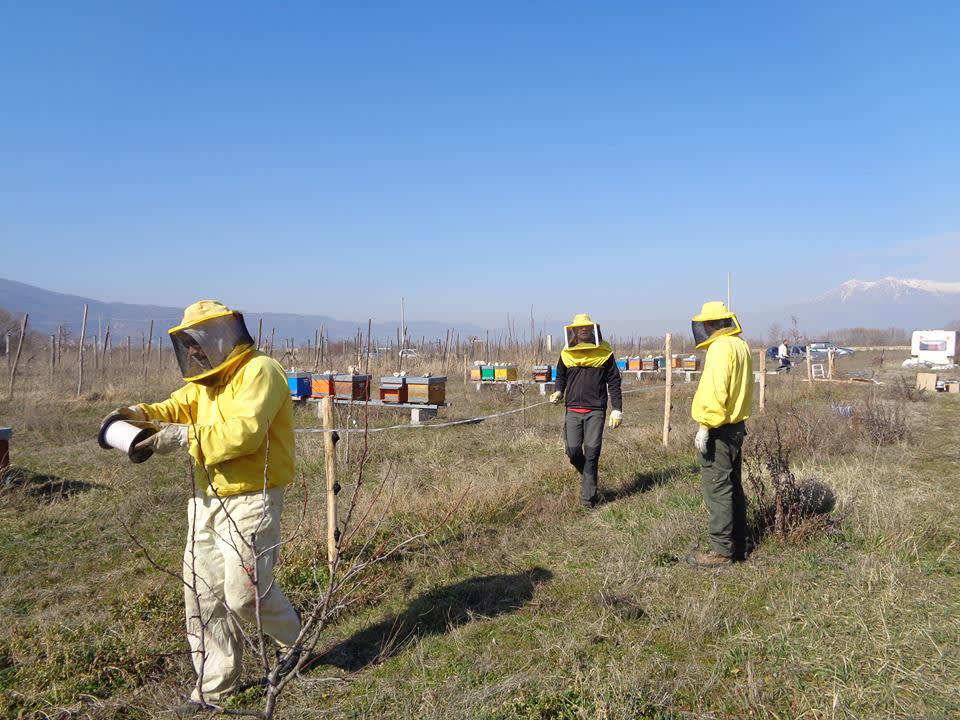
Peitrantonia also notes that Rewilding Europe has implemented, “the installation of electric fencing to help local beekeepers avoid any losses of bee life and destruction of hives by outside predators. This helps to ensure high levels ofentomophily (pollination by insects) which bolsters biodiversity, and biodiversity is the key to understanding a healthy ecosystem”. For example, in the summertime, the Apennines hillsides are carpeted with a wide variety of wildflowers and wild berries including narrow-budded wild tulips, (Tulipa sylvestris) navy blue grape hyacinths (Muscari neglectum) and buckthorn berries bushes scattered across the forests. Key pollinators such as bees ensure these flowers and berries are cross-pollinated throughout the Apennines so larger animals like the Marsican bear can feed off their berries that provide a high source of vitamin C in their varied diet. The Marsican bears then disperse these fruit seeds by the thousands through their scat, which profoundly affecting what grows in the forests. So, without these high levels ofentomophily (pollination by insects), the health of the ecosystem in the Apennines and its biodiversity would be at significant risk. Bees play an integral role in maintaining a healthy, thriving environment.
Peitrantonia explains that the work bees do not only has a profound rippling effect on the health of an ecosystem and its biodiversity, but it also benefits the world as a whole. “If the presence of plant species in any environment increases (thanks in the most part to pollination), the organising capacity of carbon dioxide, (the greenhouse gas responsible for climate change), consequently increases as well. From my point of view, bee pollination remains one of the world’s most vital mitigation measures for the global warming problem – it’s all interconnected”.
He poignantly concludes, “NGO’s like Rewilding Europe are laying the foundations for other companies to follow suit in the fight to combat carbon offsetting. It is important that man returns to playing a decisive role by taking a positive and nature-centric vision in day to day life”. Peitrantonia continues, “Rewilding Europe has built a model that has the power to instigate significant cultural and social change in Europe and beyond, which has the potential to help to change environmental dynamics for the better and support future generations to come.”
At Exodus, we passionately seek to improve life through travel for the places we visit on our adventures, the people we meet when we’re there, and the planet which hosts us. Through our Planet Plan, we focus on carbon footprint reduction, but we are also committed to protecting our world’s wildest landscapes, their ecosystems and unique biodiversity that play a vital role in cross-pollination and removing carbon from our atmosphere. To find out more about our Nature & Carbon Corridors Project and how you can help support ecosystems through Rewilding Europe, click here.
